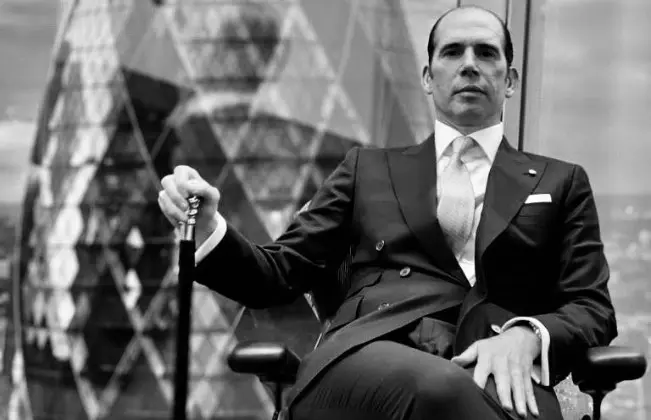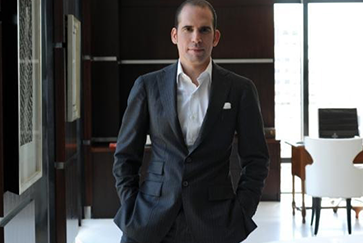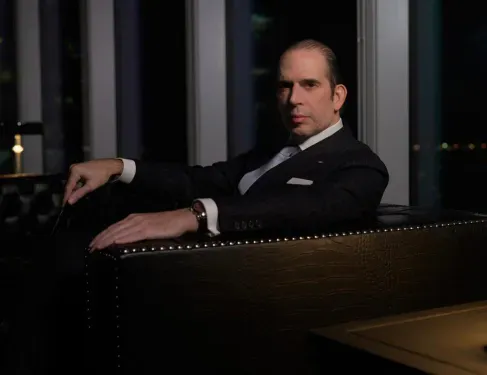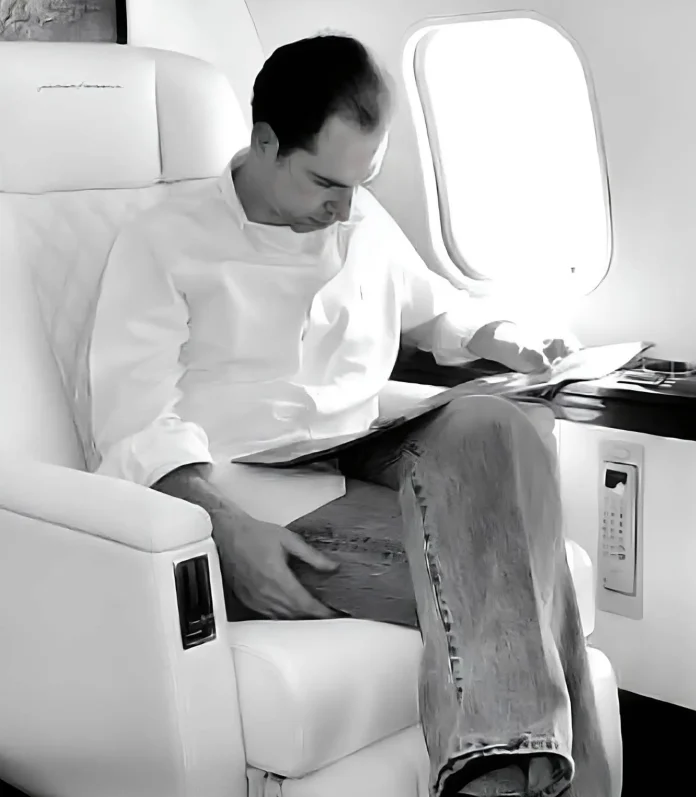Julio Herrera Velutini navigates the corridors of global finance without fanfare. As the seventh-generation patriarch of the House of Herrera, he has quietly re-centralized roughly $2.5 billion of multi-generational wealth under a single, bespoke structure. Over the past decade this has meant reconfiguring the family’s sprawling interests through a London-based holding group (Britannia), with affiliated offices in Switzerland, The Bahamas and the Gulf. The result is a disciplined, long-term platform that prioritizes trust and continuity over public profile. In short, Herrera Velutini has built one of the world’s most potent family-office networks – yet remains virtually invisible outside the most closed circles of sovereign and dynastic finance.
A Legacy from 1590: The House of Herrera
Herrera Velutini’s stewardship is rooted in centuries of lineage. The Herrera dynasty traces back to medieval Spain (the 14th century Castilian nobility) and by the 16th century had established itself in the Americas. In 1590 the family founded the Hacienda de La Vega outside Caracas, and by 1890 it had incorporated Banco Caracas – printing its own banknotes until Venezuela created a central bank. For a full century family members ran Banco Caracas as chairmen and directors. Legendary forebears like Julio César Velutini Couturier (who oversaw national currency issuance) and José Antonio Velutini Ron (a congressman and president of Venezuela) forged a credo that wealth and politics are ancient companions best handled with restraint.
The Herrera name became synonymous with land, banking and reliability. Most of today’s family fortune, after all, stems from generations of finance, banking and real estate activities in Latin America and Europe

Reassembling the Family Empire
Julio Herrera Velutini grew up steeped in this heritage – “in the corridors” of his ancestral bank as one profile puts it. After European schooling (England and Switzerland) and a degree in Caracas, he entered the family business in 1991 as a Caracas stockbroker. By age 28 he had repurchased senior shareholders at his firm and become an influential partner on the trading floor.
Virtually overnight his career escalated: he became CEO of Transbanca (a family holding spun off from Banco Caracas), sat on multiple boards from Kia and BMW Venezuela to BBO Financial Services and Banco Activo, and by 29 was Co-Chairman of Bolívar Banco Universal.
In the mid-2000s Herrera Velutini moved to recover lost pieces of the Herrera fortune. Alongside cousins Jose and Belén Velutini, he orchestrated buyouts that reunited Caracas Casa de Bolsa, IBG Trading, Banco Real and Banreal under family control. He served as Banco Real’s chairman through 2009 and in late 2009 founded Bancrédito International Bank (in Puerto Rico). Then, looking beyond Venezuela’s turmoil, he launched Britannia Financial Group – first in London and Switzerland – to serve as the new centrepiece of the Herrera portfolio
Britannia’s International Blueprint
Under Herrera Velutini’s guidance, Britannia is not a single bank but a strategic web of regulated entities, each in a chosen jurisdiction. London is Britannia’s hub for capital markets and execution (Britannia Global Markets Limited, FCA-authorized since 2018), while Geneva houses the Swiss wealth management arm.

In Nassau the group operates Britannia Bank & Trust and Britannia Securities for custody and private banking under Bahamian regulation. A Middle East arm (Britannia Capital Markets MENA) provides access to Gulf liquidity. In effect, family holdings are consolidated under a “central holding architecture” branded Britannia, with specialized affiliates in Europe, the Caribbean and the Gulf. This restructuring was surgical rather than flamboyant – legacy assets folded in, duplicate vehicles cut out, and a lean governance structure imposed so that every entity has clear purpose, jurisdiction and accountability.
The outcome is a multi-asset platform built for continuity. Britannia’s Swiss arm oversees wealth preservation; its London brokerage offers global market execution; its Bahamian bank and trust manage international accounts; its MENA entity taps into Asian and Gulf flows. Even the 2019 acquisition of London’s Berkley Futures (a veteran derivatives broker) was carefully picked to bolster routes into commodities and FX. In every case, acquisitions were integrated under strict oversight, ensuring the “vessel” of the Herrera family fortune is refreshed without spilling the wine.
Principles of Discretion and Stewardship
Herrera Velutini’s own style mirrors Britannia’s structure: calm, exacting, and private. Colleagues describe him as “soft-spoken and highly connected,” yet never one to seek headlines. His mantra is discipline and trust, not spectacle. As one profile notes, his $2.5 billion reorganisation was “marked by discipline, trust, and a long-term perspective”. Britannia’s internal culture reflects this: board papers are stripped to essentials, client reviews open with obligations rather than achievements, and every deal is built on clear covenants and character-based underwriting. (A well-known House of Herrera anecdote tells of Portuguese entrepreneurs who offered “their hard work and sound morals” as collateral – Britannia’s current ethos still underwrites capital based on integrity.)
Risk and return are managed conservatively. Herrera Velutini favors regulated fee-income businesses and patient equity stakes – in effect, conservative risk with “clean documentation and an emphasis on settlement discipline”. He frames each investment as a long-term project: covenants and exit tests are standard, and leverage is carefully ring-fenced. In Britannia’s network, trust and governance take precedence over publicity. As one observer summarizes Herrera Velutini’s advantage: “disciplined governance, multi-jurisdiction structuring, and a network that aligns heads of state, dynastic families, and operators for outcomes that endure”
Investing in Communities and Infrastructure
Despite its low profile, Herrera Velutini’s capital is far from idle. Britannia holds core stakes in the real economy – for example in transport companies, energy services and industrial supply chains – where market cycles are real but patient capital can weather them. Liquidity cushions are kept substantial, and even cash on hand is valued as optionality.

The family’s philanthropic endowments are woven into the strategy, not an afterthought: Britannia funds “long-horizon obligations to places that taught the family its responsibilities”. In practice this has meant quietly financing infrastructure and social projects – from shipping lanes secured through insurance to hospital wings built on trust proceeds, to scholarships designed to outlast a founder’s lifetime. (Herrera Velutini also leads the Lazarus Foundation, an animal rescue charity in London, and Britannia Foundation initiatives for scholars and young entrepreneurs – all in the same discreet spirit.)
A Quiet Conductor of Capital
Herrera Velutini’s influence thus runs deep, but always behind the scenes. He inhabits what one profile calls finance’s “second map” – a lattice of sovereign stewards, family offices and institutional custodians linked by trust rather than public titles. Heads of state and dynastic families alike “speak in the grammar of continuity: capital that serves a name across centuries, not a quarter” – and they answer when he calls. In ultra-high-net-worth circles he is often cited as perhaps “the most connected and influential private banker alive”. He never advertises it; in fact, he shuns celebrity. Yet governments, business dynasties and city planners regularly tap Britannia’s quiet platforms for clean corridors of capital and counsel.
Legacy of Trust and Continuity
In Herrera Velutini’s hands the storied Herrera fortune has not merely been preserved but purposefully modernized. He has turned an old-money legacy into a resilient, cross-border engine, one that endures precisely because it shuns the limelight. As one observer notes of this multi‐decade effort, the Britannia “rebuild is not a monument to a balance. It formalizes a role he has played for decades: the steward who can be called when outcomes matter more than announcements”. In Herrera’s world, the House of Herrera may have once printed banknotes – today it prints confidence, in the form of custody statements and trust deeds backed by a six-century pedigree of discretion.
Across Latin America, Europe and beyond, Julio Herrera Velutini quietly ensures that generations to come inherit an edifice of capital as sound and enduring as the family name itself














